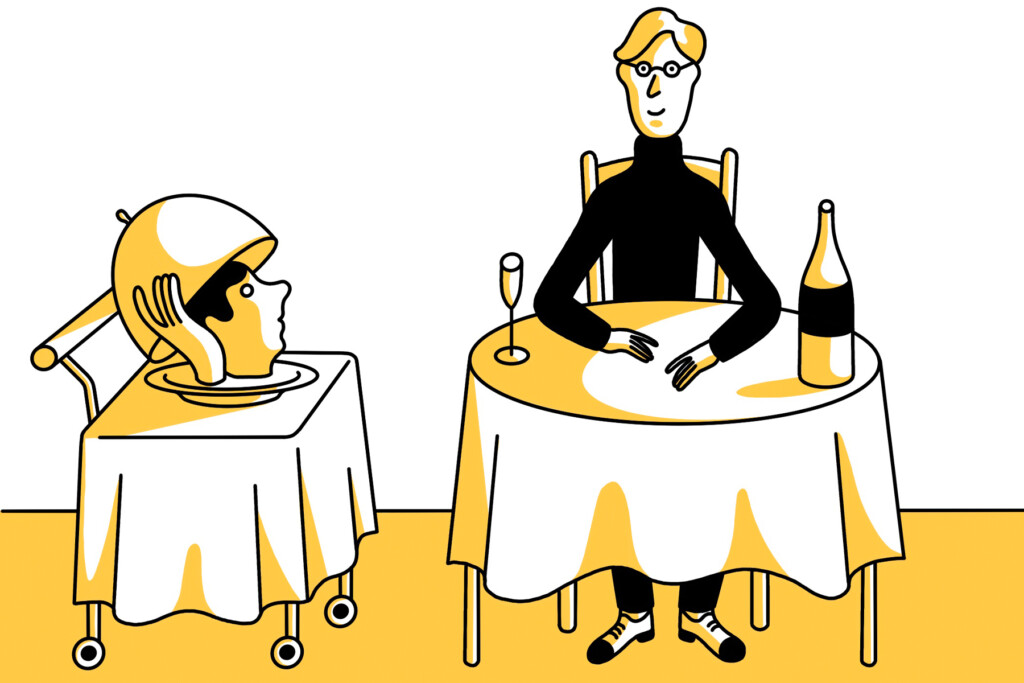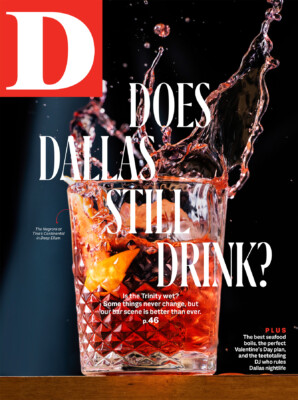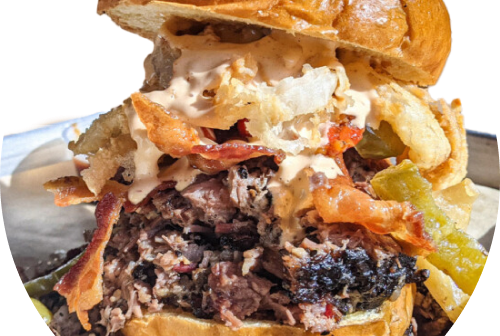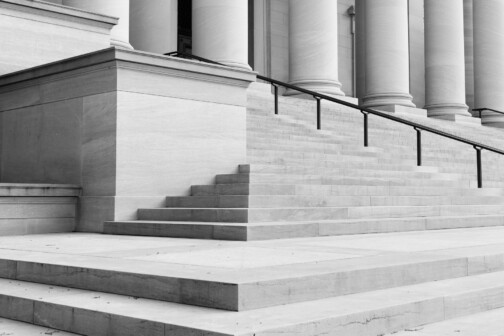My mother always told me that it was rude to point at other people. Somebody should have taught that same lesson to a bartender at Green Point Seafood and Oyster Bar, who pointed straight at me while a colleague and I sat at lunch one recent weekday.
“That’s Brian,” the bartender told our waiter, whose reply we could not hear. The bartender repeated himself: “That’s Brian.” I felt like smiling and waving, but I don’t have that kind of bravado. Also, I was getting tired. This kind of thing is happening a lot now.
Two days earlier, my partner and I had slipped into Via Triozzi at 5:01 pm without reservations, hoping for seats at the bar. We got a table instead on the condition that we vacate it by 6:30. As we left—at 6:32—another couple, clearly also on a date night, was being told that the previous occupants of their table hadn’t left yet. I felt guilty for lingering, but I’d been enabled. I know that because our enablers left us a note, printed right at the top of our receipt: “Table 32, VIP Brian.”
And three days before that, we’d popped into Gemma with friends to check out the restaurant’s renovation and almost-all-new menu. One friend noticed that a manager kept walking the floor in the same pattern. From the kitchen, he’d beeline out to our table, stand behind me, peer over my shoulder, and then loop back to the kitchen via the bar. Pants pockets and belt loops flashed in my peripheral vision every few minutes. At the end of the meal, my friend said the manager had done that little walk about a dozen times.
Why the sudden wave of citywide recognition? It’s a combination of factors. I’ve worked at D Magazine for a year and a half, my photo is at the bottom of every online column, and we’ve just updated our 50 Best Restaurants guide. Also, I needed a haircut that week. Another problem is the relative scarcity of serious restaurant criticism in Dallas. For decades, the Dallas Morning News critic was the ultimate make-or-break visitor, capable of inspiring thousands of new (or canceled) bookings. But the News hasn’t employed a full-time food critic in four years and hasn’t run a review since April 2022. (It was written by a part-timer: me.) As the daily newspaper focuses on openings and closures, and as social media influencers behave more like traditional advertisers, reviews that appear in D and the Dallas Observer are more important than ever.
Does a lack of anonymity affect the trustworthiness of our reviews? The answer is more complicated than you might think.
The question I must ask on behalf of readers is: does a lack of anonymity affect the trustworthiness of our reviews? The answer is more complicated than you might think. Yes, in many ways, my visit to a well-known Dallas restaurant is now very different from other guests’ experiences. But in other respects, you and I are being treated more equally than ever.
The differences during my meals mostly involve service. When a critic walks in, it’s too late to change a recipe or buy different ingredients. My visits make people nervous, like the poor manager who checked on our table a dozen times. (Note to that guy: sorry! We were very happy!) If you dine with me at a restaurant that employs a PR firm, you’re likely to have your water glass refilled after every third sip. Servers will ask, “Is everything OK?” not once but three times.
Here’s the part that may surprise you: many restaurants are watching you just as carefully. You just don’t know it. Reservation systems such as Resy, OpenTable, and Tock are used to store notes on every customer. After you leave, employees will punch in comments about your allergies, dietary restrictions, preferred table, favorite waiter, dining companions, and any other pertinent information. Don’t call it special treatment. Call it personalized treatment.
Have you ever been asked to provide your phone number after walking into a restaurant? That means they’ll be tracking you, not to be creepy but to better prepare for your next visit. At Via Triozzi, it was the phone number trick that gave me away, since the number we provided was tied to a pseudonymous Resy account.
“Resy is super helpful,” one Dallas restaurant owner told me. (I granted restaurateurs anonymity to give specific customer examples.) “People who come in weekly, we have notes on them. We know their anniversary because they came on their anniversary the first time. One woman really liked this bottle of wine, so if we have it available, our server will let her know.”
A second restaurateur recalled keeping notes on customers who skip appetizers and dine quickly, as well as one man with a more specific need. “We had a friend who was a really big guy,” this person explained. “Really big. We knew we had to put out a different chair for him, so we had that note in his profile. ‘Use a cane back chair.’ We didn’t just put one of those chairs at the table, we put two, because we didn’t want his date to sit in a little chair and him to sit in a big chair.”
Still, this person cautioned, notes are only as good as the attention that’s paid to them—a fact that was true before systems like Resy and Tock, when restaurant managers kept similarly diligent tabs using pen and paper. “You can have all the best software in the world, but it means nothing if you don’t know how to use it. If the server doesn’t look at that piece of paper, if the maître d’ doesn’t remind everyone ahead of time, then it’s useless.”
A third Dallas business owner makes more limited use of a reservation system’s note-taking function, focusing on allergies and special occasions. “I want to make people feel welcome, not like I know what their sweater size is,” this owner said. “But if it’s their birthday, I want to have Champagne for them.” And they, too, keep track of bigger guests. “I have made notes if people are really tall,” the owner said, “to sit them where they can stick their legs out.”
In 2017, Chicago Magazine investigated restaurants’ tracking software, revealing that kitchens keep records of who complains about too much or too little salt, who is a VIP or a PP (potential problem), who prefers booths over tables, who is left-handed (to reverse the customer’s utensils), and even one customer who needs a towel and a glass of milk after spicy food. Restaurants across the country look up guests’ names online to identify celebrities, media members, fellow chefs, or business executives. One Dallas chef recently approached a D staffer who works on the business side of our company to tell her that he’d looked her up and to compliment our magazine.
One Dallas proprietor confirmed that sharing digital notes between a group’s locations is also common. “As we open new restaurants, that new hostess might not know all the regulars at our other restaurants,” the owner said. “That’s a great bit of data to be able to say, ‘Oh, man, I should introduce myself to this guy.’ Or, ‘This person likes a quieter seat.’ ”
From this perspective, my experience as a known dining critic is more like yours than it was before. When I successfully arrive unannounced, restaurants may see me as a complete stranger, an ungoogleable mystery, perhaps even a tourist—unlike most of their customers. If you have a reservation app account, a strong presence on the internet, or a regular table at your favorite spot, restaurant managers already know everything about you, from your favorite cocktail to your unusual height. I’m not getting special treatment. I’m catching up.
This story originally appeared in the February issue of D Magazine with the headline “Surveillance Steak.” Write to [email protected].
Author








